PhD Defense Seminar: "The Role of Nutrient Transporters as Gatekeepers to Cell Fate Decision Making"
For those unable to attend in person there is a Zoom Link: Zoom: https://uky.zoom.us/j/83606615668
For those unable to attend in person there is a Zoom Link: Zoom: https://uky.zoom.us/j/83606615668
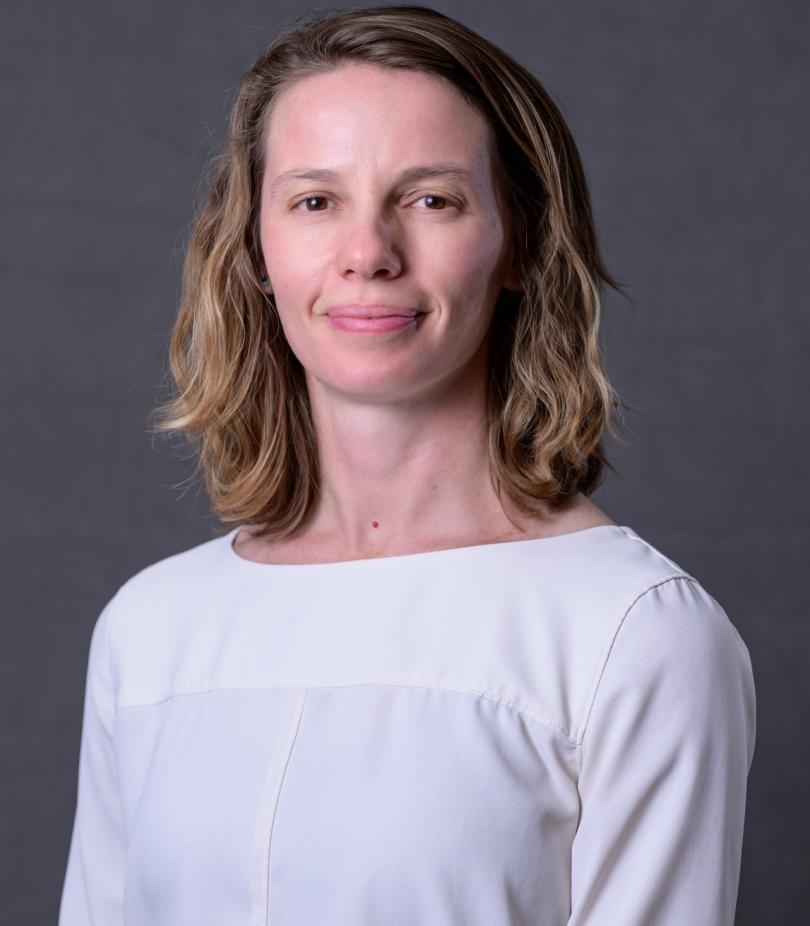 Dr. Erin Richard
Dr. Erin RichardBio:
Dr. Erin M. Richard is a Senior Lecturer in the Department of Biology at the University of Kentucky, where she integrates evidence-based teaching practices and mentoring into undergraduate science education and research experiences. Dr. Richard earned her Ph.D. from the Medical University of South Carolina and holds a B.S. in Chemical Engineering from the University of Kentucky. Dr. Richard has been recognized for her teaching excellence, receiving the UK Arts & Sciences Outstanding Teaching Award and has served as a faculty fellow in multiple teaching innovation programs. Her research background is in molecular biology and immunology and she currently focuses on student affective experience in STEM and on the microbial ecology of natural and waste waters. She serves as a co-PI on an NSF S-STEM grant supporting biology and neuroscience undergraduates and is dedicated to mentoring students and developing inclusive classroom and research environments.
Abstract:
Everyone is born with curiosity and the ability to use science to answer questions. Through observation and curiosity, we draw conclusions and make improvements in our world. Connecting students with their curiosity, their peers, and their communities prepares them to engage in understanding their environments and working to make them better. In this talk, I will demonstrate using science classrooms and research experiences to develop students into lifelong learners and problem solvers for the future. In a mini-lesson, I will demonstrate the use of evidence-based teaching methods in a lecture on Infection and Pathogenicity for an introductory microbiology course. Following this teaching demonstration, I will discuss my research program. Through both CUREs and research projects, students will learn to engage with their communities as stewards of water quality and with their peers through investigation of student affective experience. These enriched learning opportunities can prepare students for a changing world so they remain connected and engaged in the face of global warming, AI, and the myriad other challenges they will encounter. Drawing on my experience in biology education and research, I will demonstrate how well-crafted classrooms and authentic research experiences can foster transformative learning for undergraduates.
Watch the seminar here!
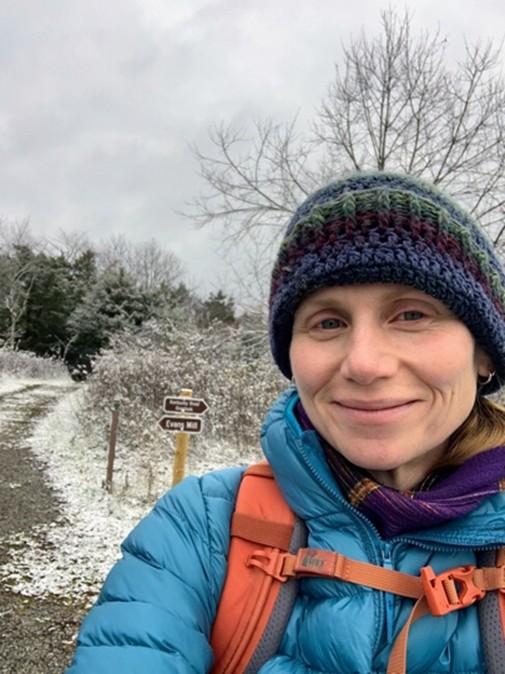
Bio:
Emily Croteau is a Senior Lecturer in the Biology department at the University of Kentucky. She is enthusiastic about teaching students “how science works”. To that end, Emily focuses on supporting biology undergraduates by facilitating research opportunities in CUREs (Course-based Undergraduate Research Experiences). CUREs emphasize building students' discipline-specific competencies, such as practical laboratory skills, quantitative analysis, data interpretation, conducting literature reviews, and communicating scientific findings. Research projects include a conservation focus with an emphasis on surveying biodiversity.
Abstract:
The scientific process involves a dynamic and flexible approach. However, most print and online resources would lead us to believe that science is a rigid, linear process with little room for tentativeness and adaptability. While this model is useful at its most basic level it can create misconceptions about how science is done and hesitancy to accept scientific explanations. In this seminar, I’ll share a teaching demo that illustrates how science is a cyclical process, involving the refinement of questions and hypotheses, iteration, and teamwork. This model of science has influenced how I teach. As such, I have developed an undergraduate-driven research program in the form of Course-based Undergraduate Research Experiences (CUREs) that rely on inquiry, repeated testing and adaptability to unexpected results. Research areas include real-world conservation questions that may involve molecular or field applications. Although positive research outcomes are important, the real success is in cultivating students’ skills as researchers and communicators and fostering curiosity and creativity.
Watch the seminar here!
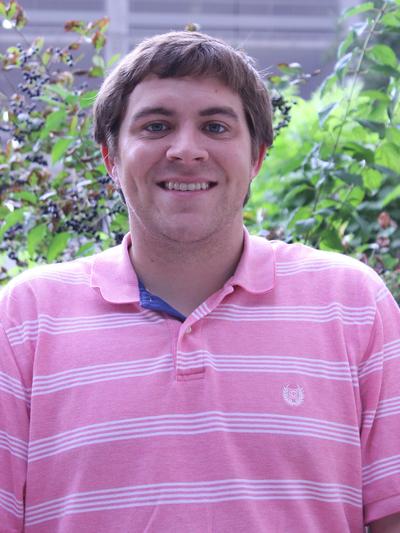 Dr. Ryan "Layne" Gaynor
Dr. Ryan "Layne" GaynorBio:
I am a behavioral ecologist interested in how changes in the sensory environment impact communication and social interactions between individuals. I recently completed my PhD in Evolution, Ecology, and Organismal Biology at Ohio State University, where my dissertation work focused on the response of a cooperatively breeding fish to changes in the visual environment.
I am passionate about science education, and strive to prepare my students to be lifelong scientific thinkers. At Ohio State I taught my department’s summer ecology course EEOB 3410, and will do so again this summer at OSU Stone Lab. I have also worked as a teaching assistant for a variety of courses including: BIO 1113 – Biological Sciences: Energy Transfer and Development, EEOB 2510 – Human Anatomy, EEOB 3420 – Behavioral Ecology, EEOB 3310 – Evolution, and EEOB 2520 – Human Physiology.
Abstract:
My ultimate goal as an educator is to prepare my students to be lifelong critical thinkers and thoughtful consumers of scientific media. I strive to achieve this through the use of discursive teaching strategies designed to encourage students to reflect on the course materials. I also aim to structure my courses to increase student agency by giving them options in how they can engage with the course content. To illustrate my approaches, I will lead a short lesson on evolution via natural selection. In large lecture settings I incorporate frequent check-in questions, short discussion prompts, and case studies into my lessons to promote student engagement. Regular check-in questions give me immediate feedback about student understanding and can highlight topics in need of further development. Outside of lecture students are encouraged to complete short-form writing assignments designed to help them organize and apply the course content. I will then discuss potential assessment tools for gauging the effectiveness of my teaching strategy.
Watch the seminar here!
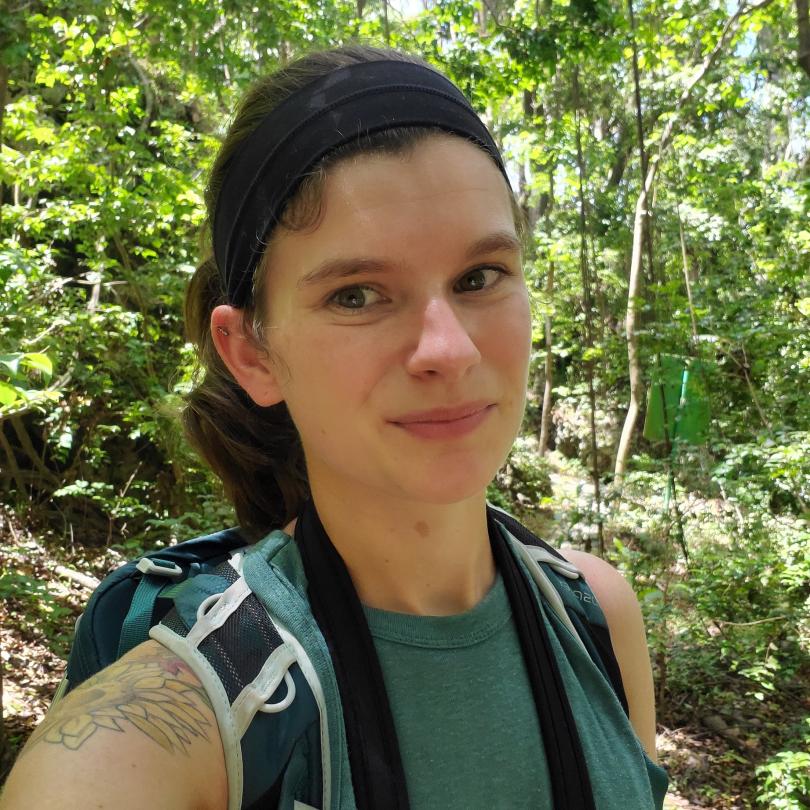 Dr. Rose Amrhein
Dr. Rose AmrheinBio:
Rose Amrhein is from Pittsburgh, Pennsylvania. She received her bachelor’s degree in Zoology from Juniata College. She then went on to complete a master’s degree in Primate Behavior and Ecology at Central Washington University. During this time, she conducted field research on the social behaviors of Tibetan macaques in China. She recently completed her PhD in Biology at the University of Louisville where her work focused on variation in monkey social behaviors in the Caribbean. She has been a teach assistant for numerous biology classes and labs throughout her time in graduate school and has instructed environmental science courses at the University of Louisville and Spalding University. While at the University of Louisville she also assisted in the lesson design and implementation of an Anatomy and Physiology lesson using virtual reality.
Abstract:
A dynamic and engaging learning environment is vital to student learning. When designing courses, it is also imperative to make content accessible for all students. In this seminar, I will discuss some of the ways I incorporate active learning and Universal Design strategies to meet these goals. To further engagement I also make a directed effort to connect course material to real world scenarios that students can relate to. These strategies can be adapted to a variety of formats including online courses or large lectures where some strategies may be otherwise difficult to implement.
Watch the seminar here!
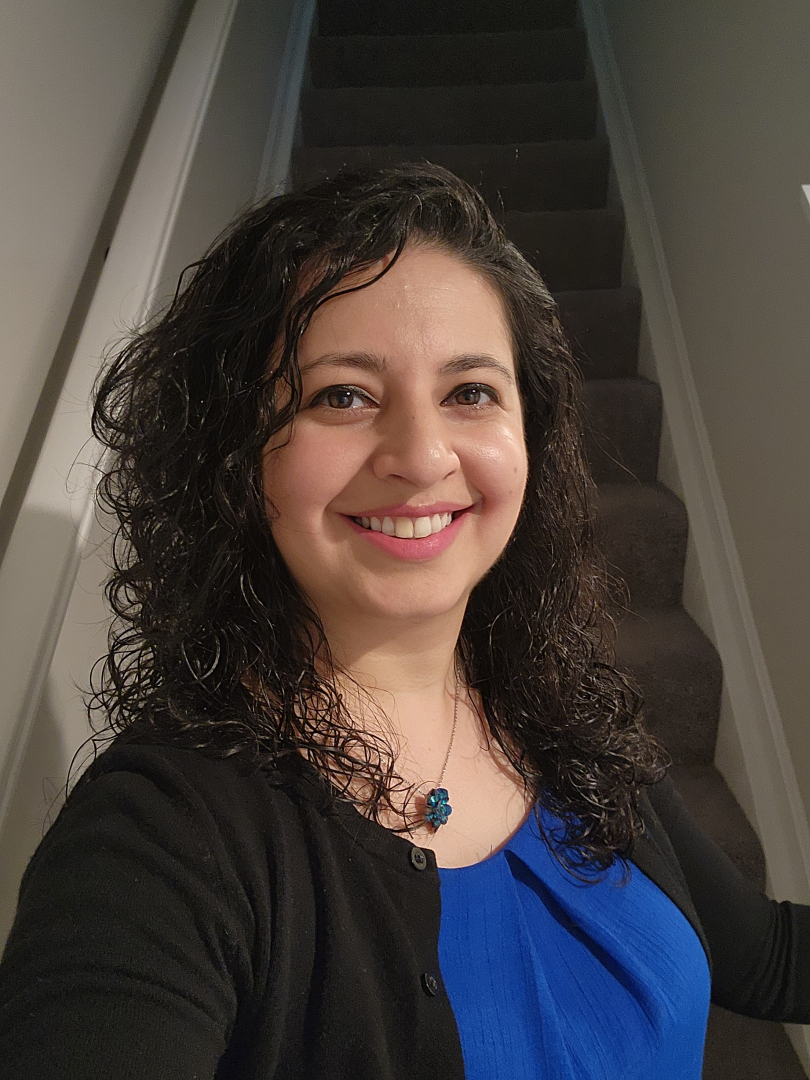 Dr. Sanaya Stocke
Dr. Sanaya StockeBio:
Dr. Sanaya Stocke is an Assistant Professor in the Department of Biology at the University of Louisville. She holds M.Sc. and B.Sc. degrees in Zoology from the University of Pune, India. She earned her Ph.D. in Biology from the Department of Biology at the University of Louisville, where she now serves as faculty. She completed her postdoctoral training in the Department of Anatomical Sciences and Neurobiology at the same institution.
Dr. Stocke has authored seven first-author publications in peer-reviewed journals, including The Journal of Neuroscience, Molecular and Cellular Endocrinology, and Metabolomics. Her teaching portfolio spans both introductory and upper-level biology courses, and she is strongly committed to inclusive, active-learning pedagogy. She also supervises undergraduate laboratories and mentors graduate teaching assistants.
Her research bridges gene expression, neurobiology, metabolism, and pedagogy, ranging from molecular investigations of neuropeptide signaling and food preference in model organisms to the development of inclusive, research-based lab experiences for undergraduates. Dr. Stocke is a dedicated mentor and advocate for diversity in STEM and has received departmental recognition for excellence in teaching.
Abstract:
In this talk, I will demonstrate my integrated approach to undergraduate education and research training by highlighting my experience as a classroom instructor and neuroscientist. I will begin with a short teaching demonstration on DNA replication, illustrating how I foster student engagement and conceptual understanding in large introductory biology courses using active learning strategies.
I will then present an overview of my Ph.D. and postdoctoral research, which investigated the effects of glyceollins (soy-derived phytoestrogens) on gene expression in the mouse brain and the role of cortico-cortical interactions in flavor processing in rats, respectively.
Finally, I will introduce a Course-Based Undergraduate Research Experience (CURE) I am developing that explores how dietary factors influence neuropeptide F signaling and food preference in Drosophila melanogaster. This project not only offers students hands-on experience with experimental design, molecular biology, and behavioral assays, but also allows me to pursue parallel pedagogical research on the impact of research-integrated lab courses on student belonging and confidence in STEM.
My goal is to create a research and teaching environment that is inclusive, curiosity-driven, and centered on building foundational skills that will prepare undergraduates for diverse careers in biology.
Watch the seminar here!
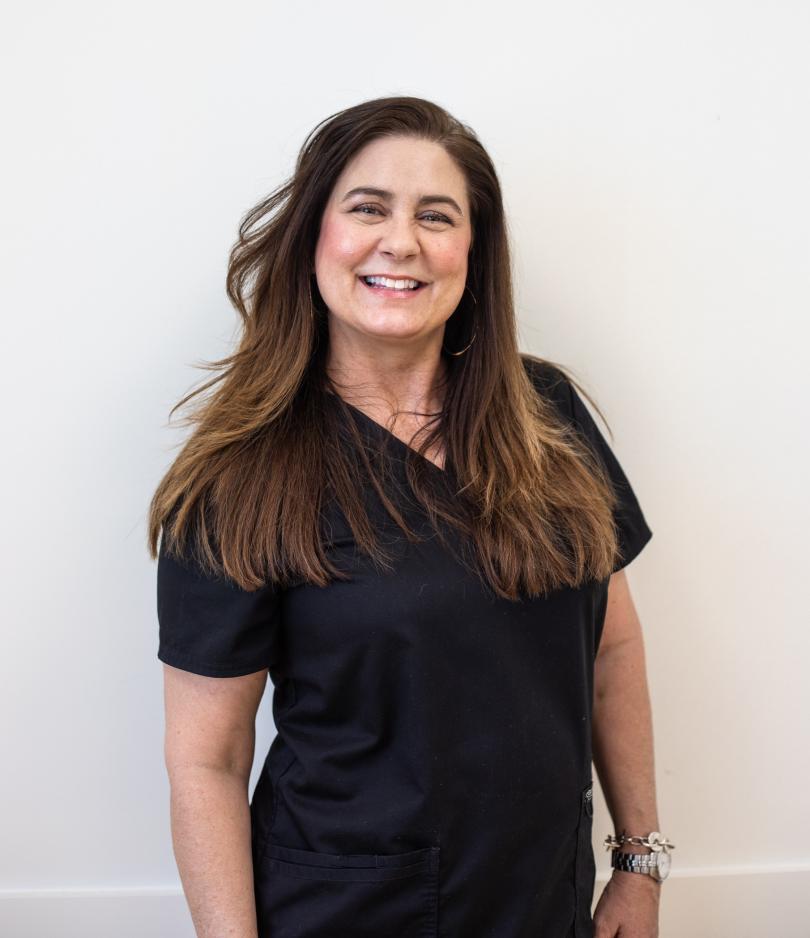 My name is Jerri Alley. I grew up in Ashland, Kentucky. I live in Harrisonburg, Virginia now.
My name is Jerri Alley. I grew up in Ashland, Kentucky. I live in Harrisonburg, Virginia now.
What is your connection to the Department of Biology?
I was a biology major at UK. I graduated with a BS in Biology in 1992.
Student registration is currently open on Handshake and will close the day of the event. Interested businesses and organizations are encouraged to register, new registrations will not be accepted after March 24th.
The PNB Career and Resource Fair is free and open to all majors, though organizations attending were selected for their fit with psychology, neuroscience, and biology majors.
We have over 50 organizations registered to attend the fair, including:
A complete list of organizations attending the fair can be found HERE.
Students will find opportunities to:
Also, students can enter to win one of four $1000 scholarships!
To maximize your interactions at the fair, students are encouraged to visit the Stuckert Career Center to workshop their resumes and practice their interview skills.
Questions? Email: PNBCareerandResourceFair@uky.edu